CNI News
5 May 2025
Over the decades, a growing body of evidence from books, political confessions, and military statements has established Pakistan’s deep and sustained involvement in terrorism, both regionally and globally. The Pakistani state, led by its military and intelligence agencies, has systematically nurtured extremist groups to pursue strategic goals, particularly against India. Over time, direct admissions by Pakistan’s civilian and military officials have exposed this nexus. This research note compiles critical evidence from leading books and public confessions, offering a comprehensive view of Pakistan’s state-sponsored terrorism.
Evidence from Books: Insights from Global Literature
• In The Spy Chronicles: RAW, ISI and the Illusion of Peace, authors A.S. Dulat, Aditya Sinha, and Asad Durrani offer an unvarnished account of Pakistan’s covert strategies. In this book Asad Durrani, the former ISI chief, discusses Pakistan's involvement in creating the Hurriyat, a separatist alliance in Kashmir, and its strategic support for terrorists like Hafiz Saeed. He acknowledges the high cost of prosecuting Saeed and reveals the shocking proximity of Osama bin Laden’s hideout to Pakistan’s military academy. “Some schadenfreude (feeling pleased with the adversary’s plight) was understandable, but after Uri and the so-called surgical strike, we realized that sitting back and doing nothing was not an option. We would inevitably get involved,” Durrani said in the book.
• Pakistan Under Siege by Madiha Afzal delves into Pakistan's foundational ideology, which intertwines Islamization with a deep-rooted paranoia about India. This toxic combination has led to the emergence of extremist policies, especially within the narratives, laws, and education systems of the state. Afzal critically examines how Pakistan’s military, civilian governments, and Islamist parties have turned a blind eye to or actively facilitated terrorist alliances, creating a nation where terrorism is often a by-product of policy.
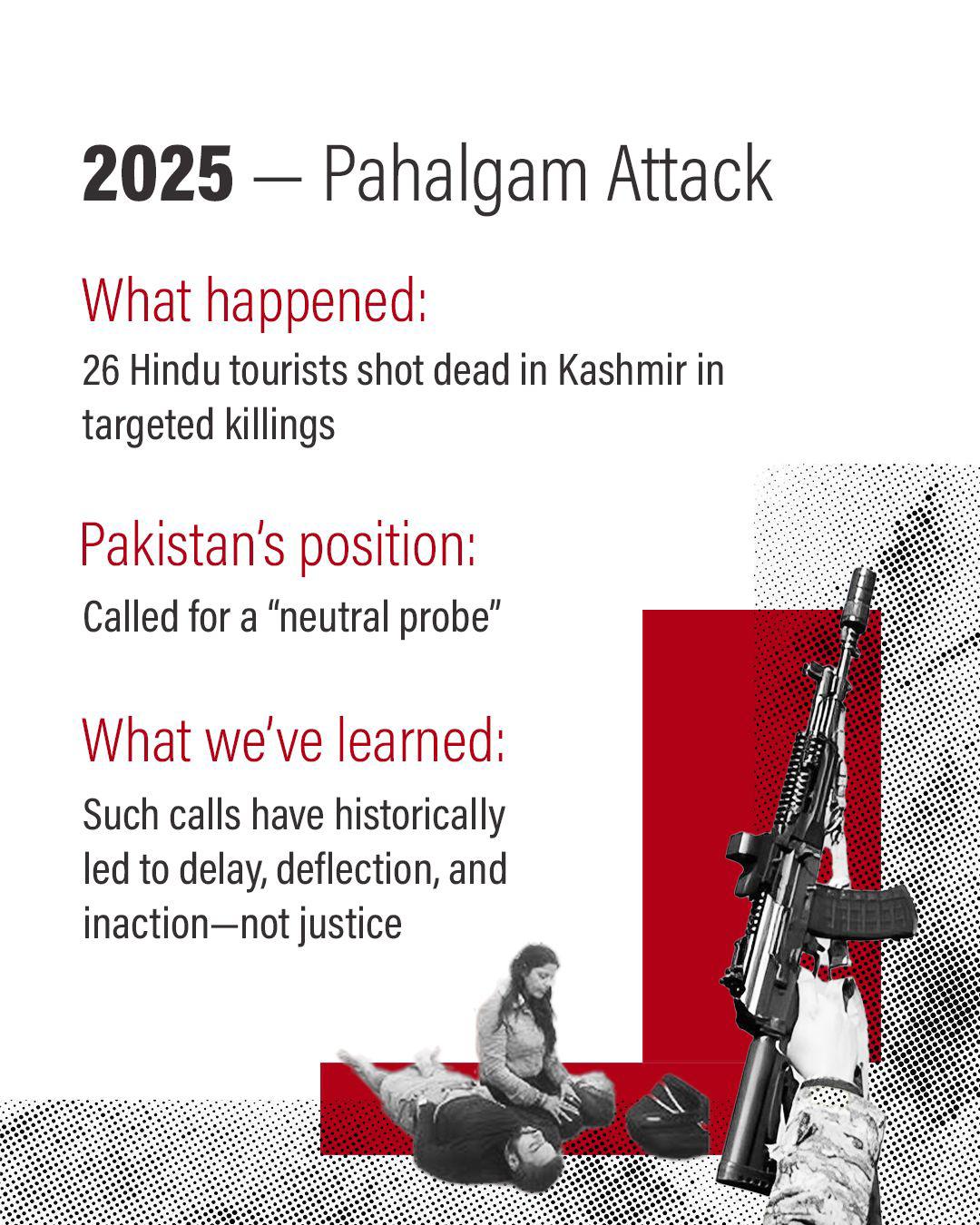
• Pakistan: Terrorism Ground Zero by Rohan Gunaratna and Khuram Iqbal offers an alarming account of Pakistan as the epicentre of insurgency. The book exposes the links between Pakistani terrorist groups and international actors, including India and Iran. The authors argue that Pakistan is both the birthplace and the incubator of terrorism, making it an indispensable player in the global war on terror—though not in the manner it claims.
• Jihadism in Pakistan (Bloomsbury) draws from 114 first-hand interviews inside extremist circles, providing rare insight into how Pakistan’s intelligence agency, the ISI, knowingly fostered Al-Qaeda operatives.
It paints a chilling portrait of Pakistan as not just a safe haven, but an active collaborator with global jihadists.
• Terrorism Revisited edited by Paulo Casaca and Siegfried O. Wolf, documents Pakistan’s continued use of jihadist groups for diplomatic leverage. By manipulating jihadism as a tool of statecraft, Pakistan not only exacerbates regional tensions but also continues to sponsor terrorism as a means of achieving military and political objectives.
The book strongly advocates for Pakistan’s international recognition as a state sponsor of terrorism.
• Deadly Connections by Daniel Byman studies how states, like Pakistan, provide financial support, training, ideological motivation, and safe heavens to terror groups, turning them into powerful geopolitical tools. Byman underscores the systemic nature of this sponsorship, pointing to the military’s strategic alliances with non-state actors, which perpetuate violence both regionally and globally.
• Not War, Not Peace by George Perkovich and Toby Dalton focuses on how Pakistan-based terror groups present an ongoing and escalating security challenge to India. The book underscores that while Pakistan continues to espouse its commitment to combating terrorism, its cross-border terror campaigns persist as a launching pad for attacks on Indian soil.
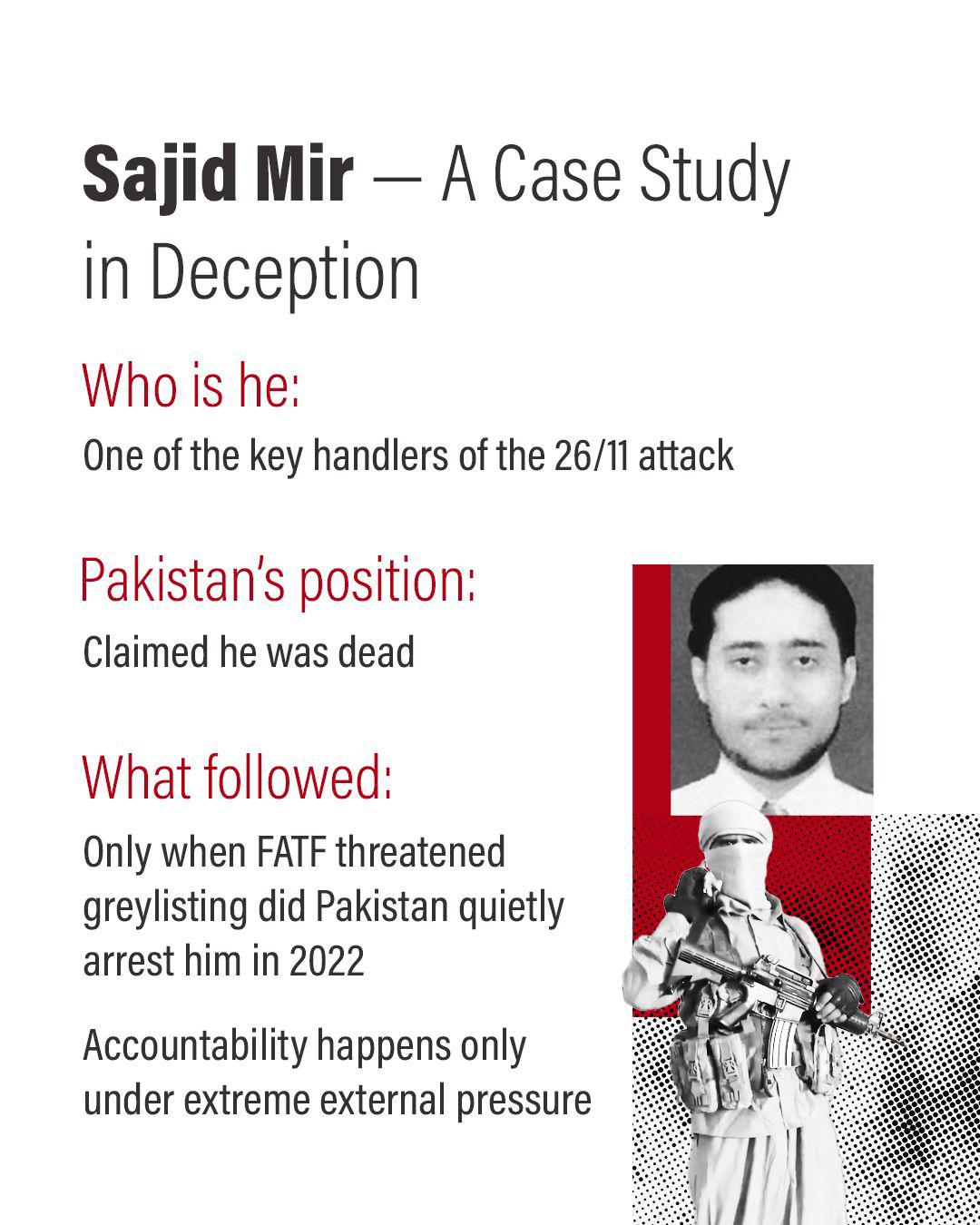
• Directorate S: the C.I.A. and America's secret wars in Afghanistan and Pakistan 2001–2016 by Steve Coll reveals Pakistan’s double game in the Afghanistan war. While Pakistan cooperated with the U.S. in the fight against terrorism, it simultaneously supported the Taliban and other jihadist groups, exposing the hypocrisy at the heart of Pakistan’s foreign policy.
• In Pakistan: The Terrorism Womb, Sr Priya Srivastava argues that Pakistan’s identity is now irreversibly intertwined with global terrorism, becoming a nation whose very existence seems sustained through terror exports.
• The Islamic State in Afghanistan and Pakistan by Amira Jadoon and Andrew Mines traces the rise of the Islamic State-Khorasan (ISK) and its links to Pakistan's fractured jihadist networks. The book underscores how these alliances pose a significant challenge to regional peace and highlights Pakistan’s role in the global jihadist landscape.
• Terrorism in Pakistan by N. Elahi chronicles the alarming rise of the Tehreek-e-Taliban Pakistan (TTP), a monster born from Pakistan’s own policies, now turning against the state itself.
• In The Making of Terrorism in Pakistan Historical and Social Roots of Extremism, Eamon Murphy provides crucial historical context, arguing that terrorism in Pakistan grew not solely from religious passion but also from deep political opportunism and elite power struggles.
• In Military Inc.: Inside Pakistan's Military Economy, Ayesha Siddiqa explains how Pakistan’s military controls large parts of the economy and how this economic power indirectly funds and supports extremist groups that align with the army’s goals.
• Edited by Moeed Yusuf, Pakistan's Counterterrorism Challenge offers a comprehensive and insightful analysis of Pakistan's terrorist threat and its global security implications.
• Pakistan Sponsored Terrorists Vol-3 by Jayant Balaji Athavale and Durgesh Samant starkly exposes how Pakistan’s ISI has systematically funded and orchestrated terrorist operations across Kashmir and Northeast India.
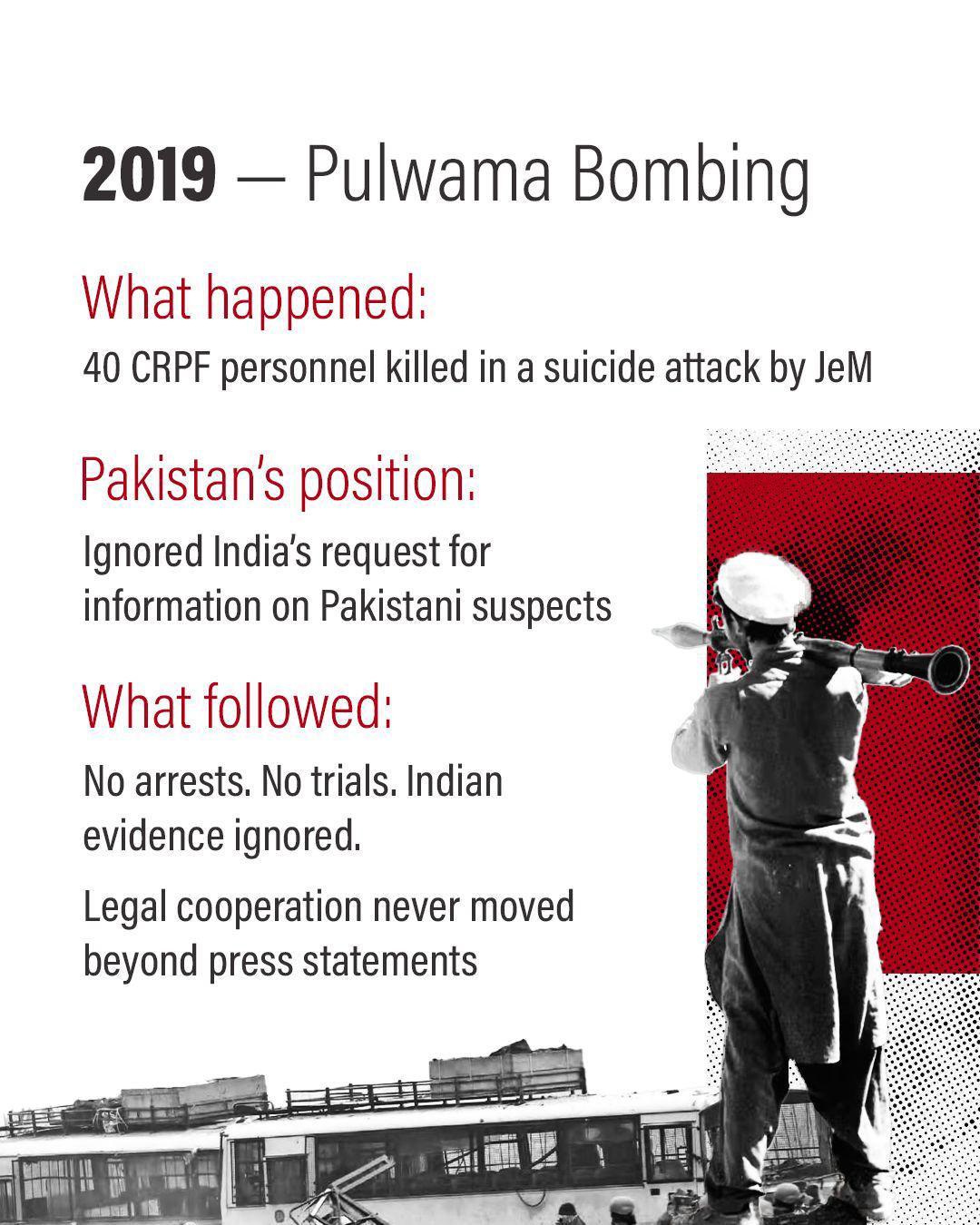
• Pakistan: Between Mosque and Military by Husain Haqqani, Pakistan’s former ambassador to the U.S., exposes the relationships between Islamist groups and Pakistan's military while exploring the nation’s quest for identity and security.
• Pakistan: State Failure, Terrorism, and Insurgency in Context by Natasha Underhill highlights Pakistan’s internal contradictions: while the country positions itself as a front-line ally in the global war on terrorism, it paradoxically harbours some of the world’s most active and dangerous terrorist organizations.
• Islamist Networks by Mariam Abou Zahab and Olivier Roy provides a map of the complex jihadist networks radiating from Pakistan, networks that birthed Al-Qaeda and continue spawning global threats.
• In Playing to the Edge, Michael Hayden, former CIA Director, sharply criticizes Pakistan's leadership for its consistent failure to confront the terrorist groups it has supported for decades. Hayden condemns Pakistan’s duplicity, particularly regarding groups like Al-Qaeda, the Taliban, Lashkar-e-Taiba (LeT), and the Haqqani network. He points to clear evidence linking Pakistan to the 2008 Mumbai attacks, stating that LeT operated with ISI's protection.
• In Pakistan's Terror Conundrum by Khaled Ahmed, the author critiques Pakistan's contradictory stance on terrorism. While the country claims to have joined the U.S. in the War on Terror post-9/11, it continues to be seen as a safe haven and breeding ground for terrorists. Ahmed highlights the gap between Pakistan's rhetoric and its actions, revealing a nation that profits from double-dealing and continues to shelter terrorist organizations despite international pressure.
Confessions and Revelations: Pakistani Leadership’s Own Admissions
Political Leadership Admissions
• Khawaja Muhammad Asif (2025): In a rare moment of honesty, Pakistan’s former Defence Minister admitted that Pakistan "supported terrorist groups for 30 years" and did "dirty work" for geopolitical gains. He remarked, “We have been doing this dirty work for the USA for about three decades and for the West, including Britain. That was a mistake and we suffered for that. If we had not joined the war against the Soviet Union and the war after 9/11, Pakistan’s track record was unimpeachable.”
• Najam Sethi (2025): Former Chief Minister of Punjab, Pakistan, and senior journalist Najam Sethi publicly admitted that Pakistan was involved in the 26/11 Mumbai Taj attack. He stated, “The Mumbai attack was carried out by an organization based in Pakistan.”
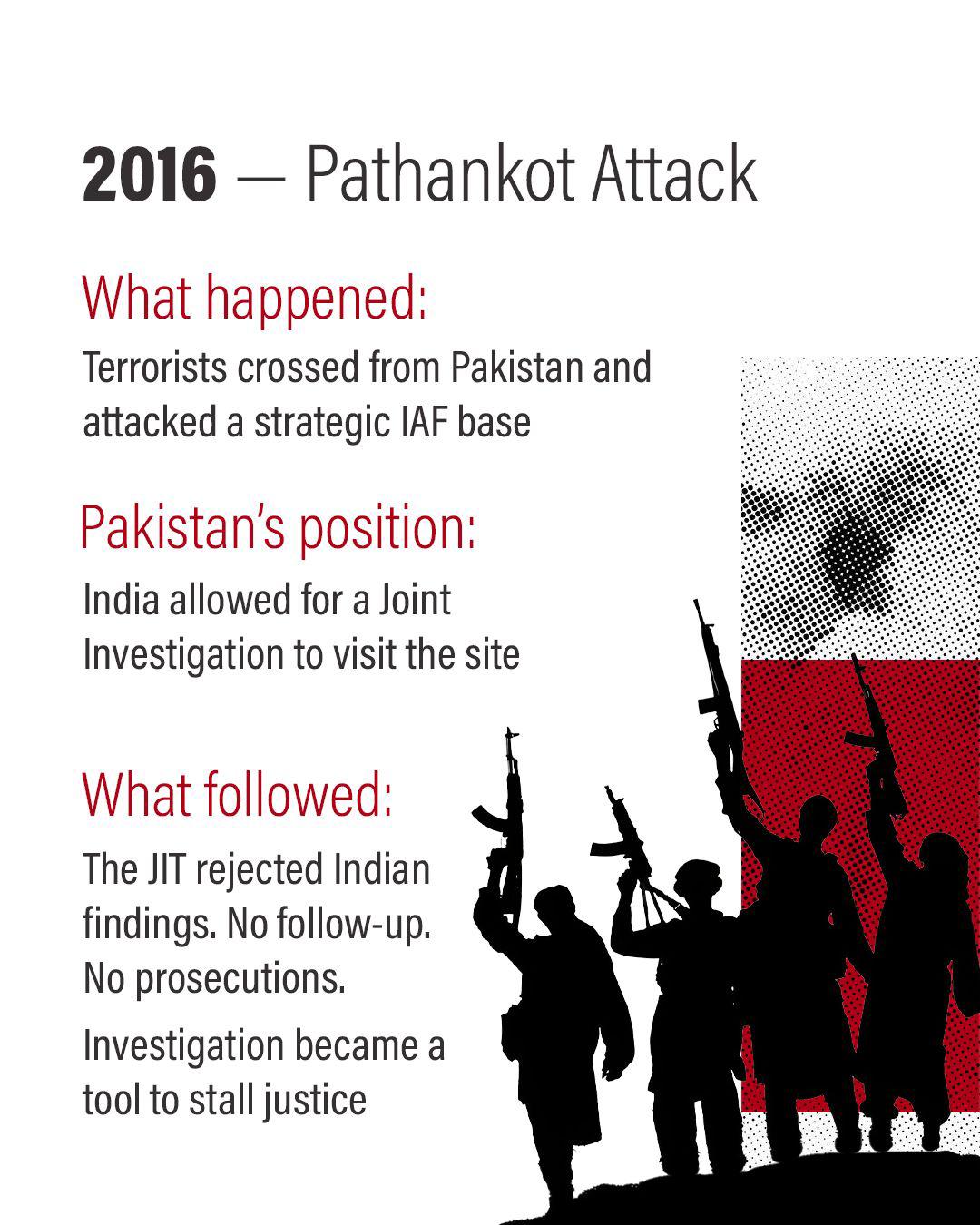
• Pervez Musharraf (2021): The former Pakistan President openly admitted that Pakistan trained and equipped Lashkar-e-Taiba (LeT) operatives to wage a "proxy war" in Kashmir. He stated, "In the 1990s, the freedom struggle began in Kashmir. At that time, Lashkar-e-Taiba and 11 or 12 other organisations were formed. We supported them and trained them, as they were fighting in Kashmir at the cost of their lives."
• Imran Khan (2019): In an explosive admission during his U.S. tour, Pakistan’s then-Prime Minister declared that the Pakistan Army and ISI had indeed trained Al-Qaeda and jihadist groups. He said, "There were always links between Pakistan and Al-Qaeda… there had to be links…
because they trained them." He shockingly acknowledged that "30,000 to 40,000 terrorists" were still present in Pakistan. Imran Khan also admitted that terror groups based in Pakistan were also involved in attacks against Iran, straining Pakistan’s relations with its western neighbour. He said: “I know Iran has suffered from terrorism by groups operating from Pakistan.”
• Nawaz Sharif (2018): Pakistan’s Former Prime Minister Nawaz Sharif has publicly acknowledged the active presence of terrorist organizations within the country. Sharif said: "Militant organisations are active in Pakistan. Call them non-state actors, should we allow them to cross the border and kill over 150 people in Mumbai? Explain it to me. Why can’t we complete the trial?"
• Asif Ali Zardari (2009): The former Pakistani President, Asif Ali Zardari, openly confessed that terrorists were deliberately created and nurtured by past Pakistani governments as part of a policy to achieve tactical objectives. He said: "Militants and extremists emerged on the national scene and challenged the state not because the civil bureaucracy was weakened and demoralized, but because they were deliberately created and nurtured as a policy to achieve short-term tactical objectives. Let’s be truthful and make a candid admission of this reality." Zardari further stated, "The terrorists of today were the heroes of yesteryear until 9/11 occurred and they began to haunt us as well."
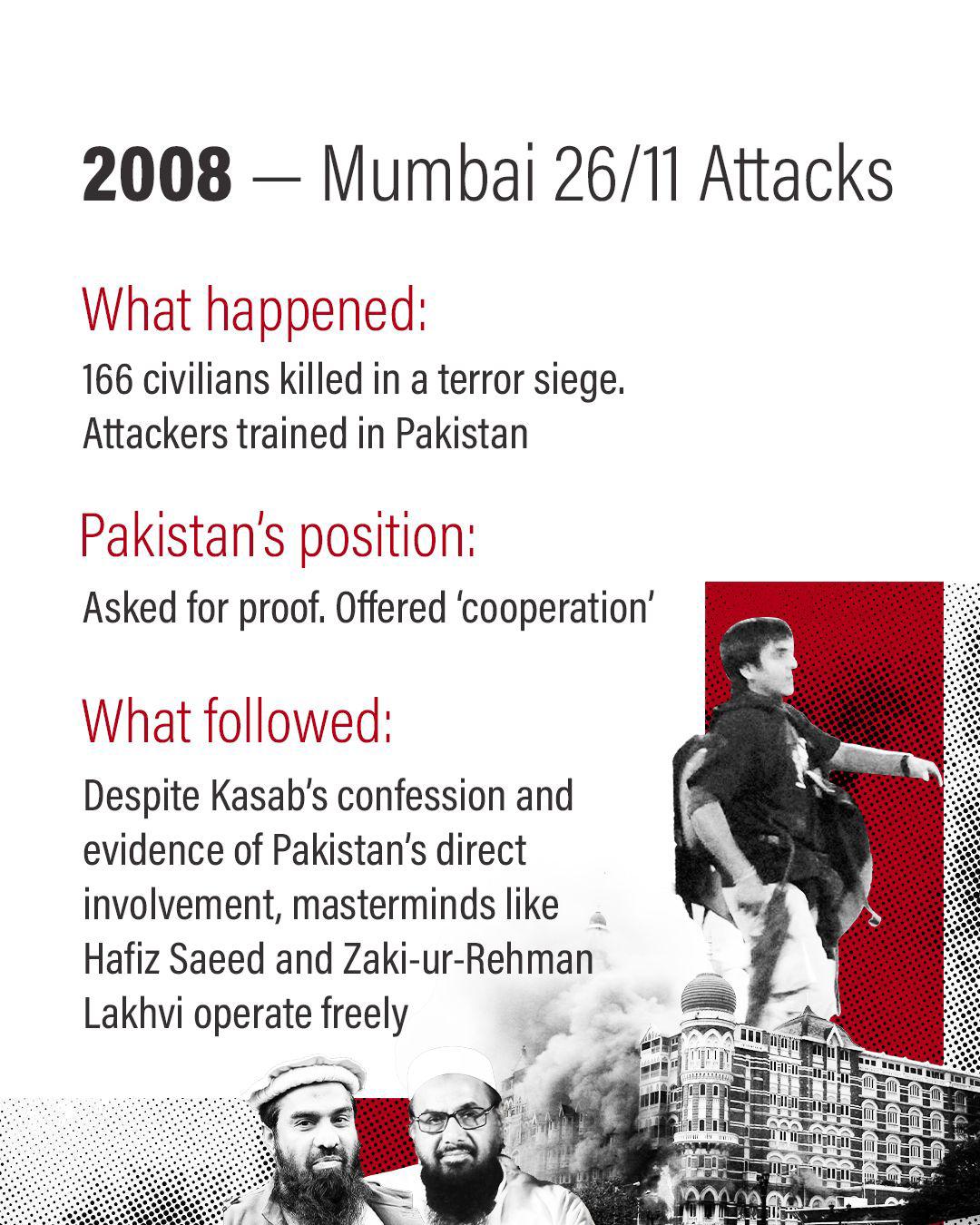
Military and Intelligence Admissions
• Major General Asif Ghafoor (2019): As ISPR head, Ghafoor admitted the presence of terrorist groups within Pakistan and criticized past governments for their failure to curb extremism. He said that there is a need to "do a lot" to combat terrorism, as Islamabad has so far "suffered losses. We have lost millions of dollars due to terrorism."
• General Qamar Javed Bajwa (2018): In a speech, then Pakistan Army chief General Qamar Javed Bajwa openly remarked that "as far as Pakistan's government, its armed forces and its Inter-Services Intelligence (ISI) are concerned, there are two kinds of terrorists, good and bad." His statement made it clear that Pakistan supports "good" terrorists against countries it considers oppressive, while portraying itself as a victim of the "bad" ones.
• Admiral Michael Mullen (2008): The then U.S. Chairman of Joint Chiefs of Staff confirmed to India that Pakistan’s military leadership admitted the 26/11 Mumbai attackers were members of Lashkar-e-Taiba.
Foreign Office and Other Officials
• Foreign Office Spokesperson Mumtaz Zehra Baloch (2023): acknowledged that some political dissidents who sought asylum in the United Kingdom and other countries had links with terrorist entities inside Pakistan, hinting at the state's awareness and partial support of such elements.
• Fawad Chaudhry (2020): Then Science and Technology Minister Fawad Chaudhry admitted in Parliament that Pakistan was responsible for the Pulwama terrorist attack in Jammu and Kashmir in 2019, which killed 40 CRPF personnel and brought the two countries to the brink of war. He stated, "Humne Hindustan ko ghus ke maara (We hit India in their home). Our success in Pulwama, is a success of this nation under the leadership of Imran Khan. You and we are all part of that success."
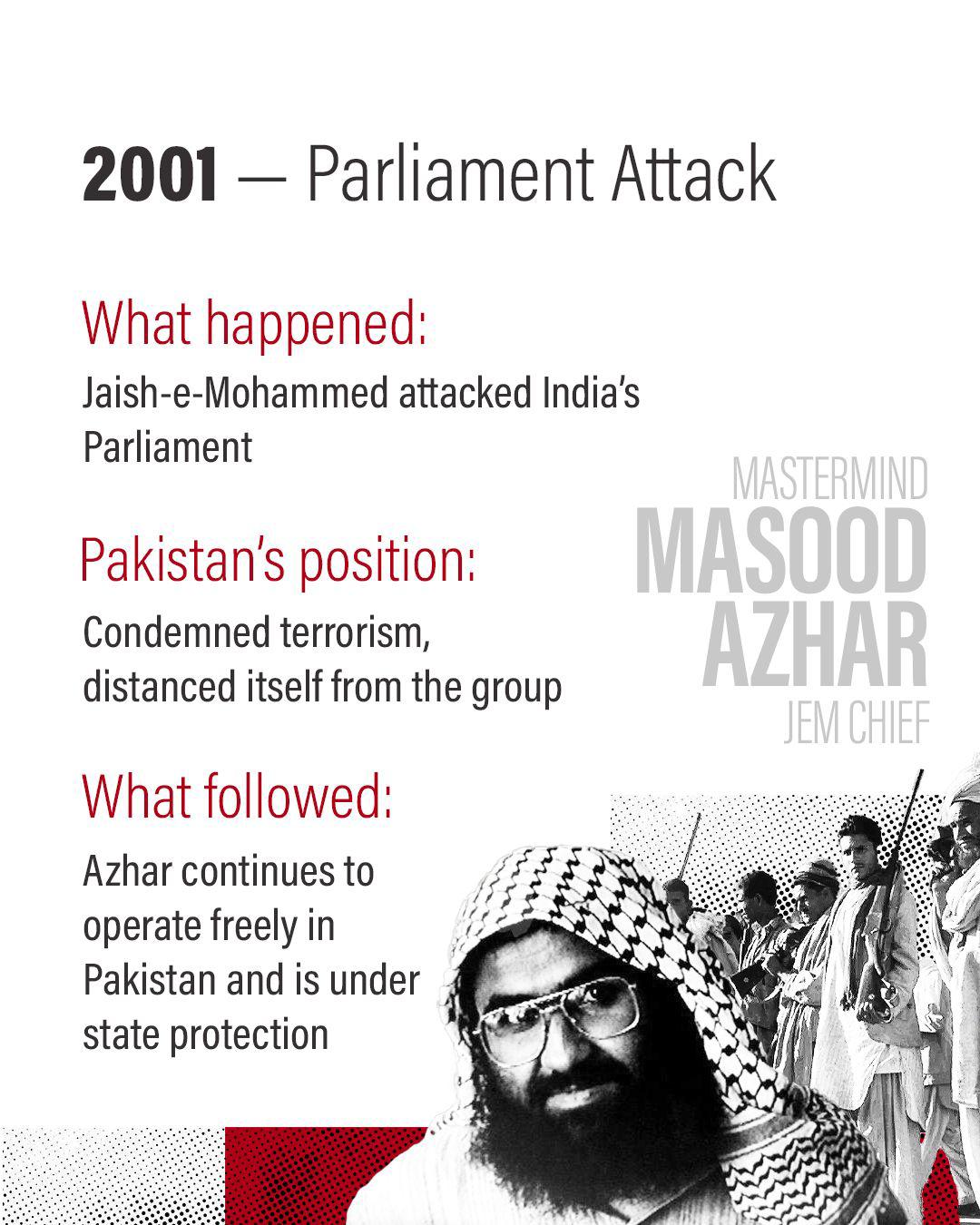
• Mohammad Sadiq (2009): Then, a Pakistani Foreign Office spokesman admitted that Ajmal Kasab, the captured Mumbai terrorist, was indeed Pakistani, ending months of Islamabad’s denials. "It has been confirmed that Ajmal Kasab is a Pakistani national following preliminary investigations by national security agencies," said Pakistani Foreign Office spokesman Mohammad Sadiq.
• Rehman Malik (2009): As Interior Minister, Rehman Malik said, "The incident happened in India, and part of the conspiracy was hatched in Pakistan.”
• Asad Durrani (2015): On the question of Osama bin Laden's location, former Lieutenant General and ISI Chief Asad Durrani said, “I cannot say exactly what happened, but… it is quite possible that they [the ISI] did not know, but it was more probable that they did.” He doubted the official line given by Pakistan’s intelligence services, the ISI, that it was unaware of the al-Qaeda leader’s whereabouts until his death, implying that Pakistan would only have exchanged knowledge of his location in a quid-pro-quo deal.
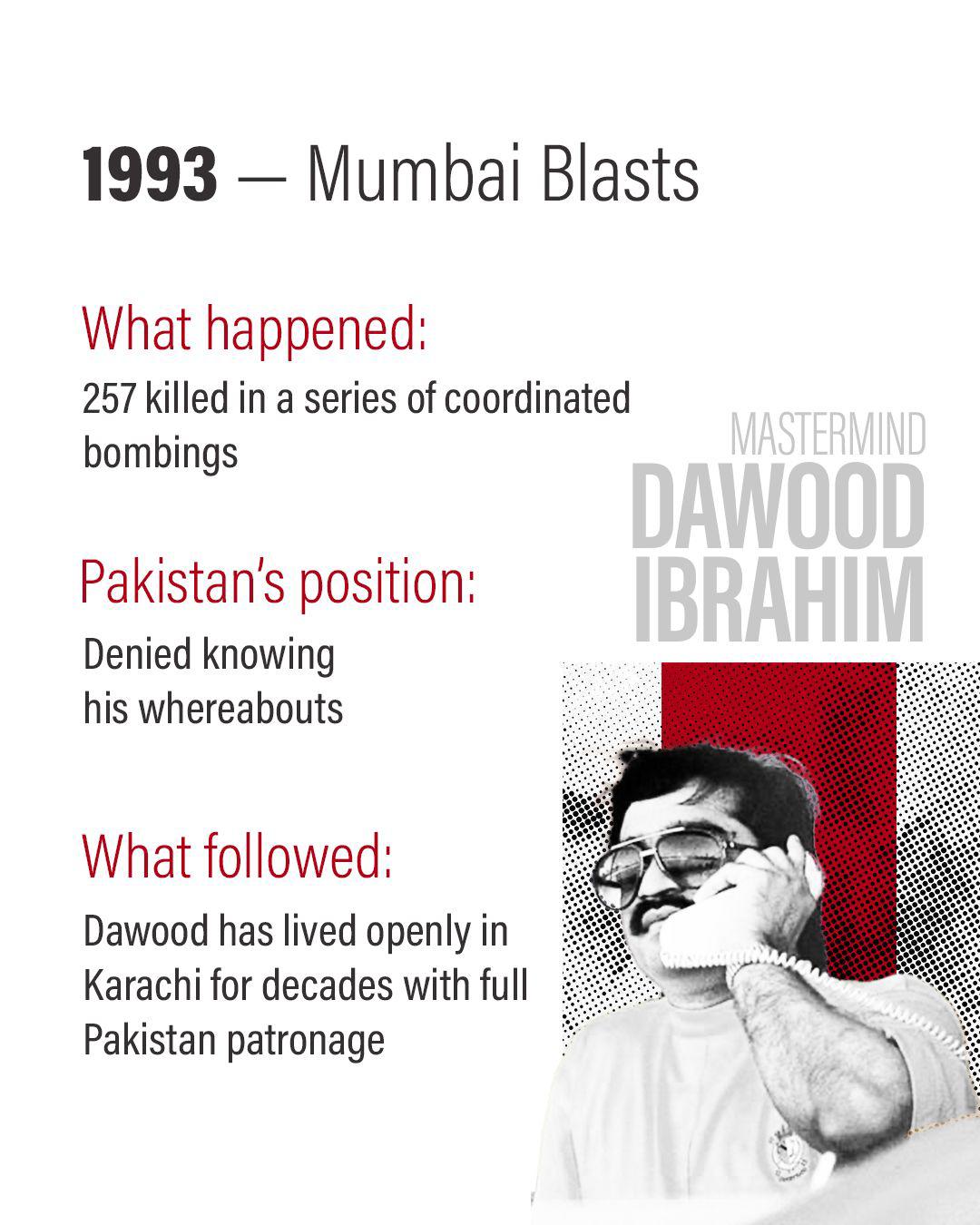
Admissions about Specific Terrorist Groups
• Syed Salahuddin (2011): Then Hizbul Mujahideen chief openly declared that his group operated with full knowledge and support from Pakistan’s military establishment. He stated, "Our mujahideen can come and go at their own will. There is no question that the army can stop us. And we have hundreds of training camps in the state where we recruit and train the mujahideen."
• FIA (Federal Investigation Agency) Report (2012): Pakistan’s own Federal Investigation Agency confirmed that Zaki-ur-Rehman Lakhvi, the mastermind of 26/11, and other LeT operatives used training camps in Muzaffarabad and Thatta for the Mumbai operation.
Conclusion: Pakistan’s Terrorism Complex
Despite occasional admissions from Pakistani officials, the nation maintains a dual stance on terrorism, denying its role while facilitating terrorist activities. This research underscores how Pakistan's strategic use of terrorism for geopolitical leverage has fuelled instability in South Asia and beyond. The contradictions within Pakistan's leadership highlight a state unwilling to sever its dangerous ties with terrorism, compelling the international community to confront the reality of Pakistan as a sponsor of global terrorism.




